Overview
EMBL will host an EU Green Week 2021 Partner Event showcasing how it is playing a role in achieving a ‘zero pollution’ continent through its exciting research and ambitious sustainability strategy.
During this virtual event, participants can engage in an interactive discussion with EMBL scientists and special guests from the Tara Ocean Foundation, HeidelbergCement, and the Ministry of Science, Research and Arts of the state of Baden-Württemberg, Germany to learn more about upcoming ocean and land research projects and community efforts to tackle pollution.
Why join our discussion as part of the EU ‘zero pollution’ ambition for healthier people and a healthier planet?
You can interact with scientists who are leading exciting research projects that use molecular biology to examine life and nanoplastics deep in the oceans and on land. You will gain a better understanding of why life science research is important in the global effort to tackle pollution, and how this research can help us find solutions.
Scientists from EMBL and our partner, the Tara Ocean Foundation, will introduce existing and future ocean and land research projects, such as:
- Mission Microplastics – to understand where plastic pollution in the ocean comes from and how it impacts us.
- Tackling plastic pollution – using specialised X-ray technology to understand the impact of tiny plastic particles that can get into our bodies and food supply.
- TREC– a touring mobile lab that will collect samples from land, oceans and rivers to help monitor the health of European coastlines and seas, and will accelerate knowledge transfer through outreach and training of citizens and scientists.
- Fighting pesticide pollution with microbes – to identify microbes and how they break down pesticides. This will enable scientists to better monitor pesticide pollution, remove pesticides from the environment, and design greener chemicals.
You will have the opportunity to ask questions and engage in discussion with EMBL scientists, the Tara Ocean Foundation, and representatives from industry and government about how we can all be more active in reducing pollution and making our world healthier and greener.
Who should attend?
Anyone interested in learning and engaging in discussion about how life science research can help us find solutions to pollution and how key sectors of society can play an active role in creating a greener world. This could include activists, students, science enthusiasts, scientists, and policy- and decision-makers from industry, academia, or government.
Programme
14:00 – 14:05 : Welcome by masters of ceremonies
Erin Tranfield and Julius Brennecke
14:05 – 14:10 : Opening address: What is EMBL and how can we contribute to zero pollution?
EMBL’s Director General Edith Heard
For almost 50 years, researchers at the European Molecular Biology Laboratory (EMBL) have been unlocking the fundamental secrets of life at a molecular level. With new advances in understanding and technology, we are now expanding our research and studying molecular life in the context of its environment – moving out of the test tube and Petri dish and into the oceans and rivers where life exists. In this opening address, EMBL’s Director General will describe the role EMBL is playing through its exciting research and ambitious sustainability plans to achieve a zero pollution Europe.
14:10 – 15:00 : Session 1: Showing the pollution we can’t see
Smog, litter, and oil spills – all pollution of the natural world and all very visible. But what about pollution that is so small we can’t see it, or that is hidden from our view? In this session, EMBL researchers share ocean and land projects that bring a better understanding of pollution and its impact. The participants will be invited to engage in discussion with EMBL scientists and representatives from the Tara Ocean Foundation.
15:00 – 15:05: Intermission
15:05 – 15:55: Session 2: Our responsibility in creating change
All sectors of society have to actively pursue more sustainable behaviour if the EU’s zero pollution ambition is to be achieved. In this interactive session with questions from the audience, we bring together representatives from research, industry, and government to explore how we can support each other in creating change. We will showcase efforts in sustainability, research and environmentally conscious projects and policies to reduce carbon emissions. Panellists will include Theresia Bauer, Minister of Science, Research and the Arts for the German state of Baden-Württemberg, representatives from EMBL, as a leading life science research institute in Europe, and HeidelbergCement – one of the world’s largest building materials companies.
15:55 – 16:00: What next?
A summary of key outcomes from today’s discussion, plus links to further information on this topic.
About the speakers
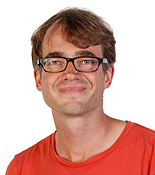
Detlev is a group leader and senior scientist in the Developmental Biology Unit at EMBL Heidelberg and holds an honorary professorship at the Centre for Organismal Studies at Heidelberg University. Along with his laboratory work, Detlev is a leading figure in EMBL’s new research area of Planetary Biology and was heavily involved in setting up the Green EMBL initiative.
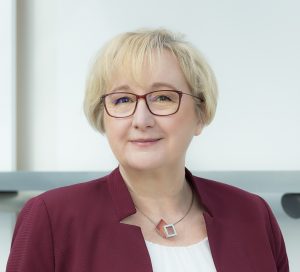
Theresia has been Baden-Württemberg’s Minister of Science, Research and Arts since 12 May 2011. She represents policy fields of central importance for social development and stands for enabling the freedom to research, think, and be creative. She was voted “Science Minister of the Year” three times (2013, 2015, and 2016) by the members of the German University Association.
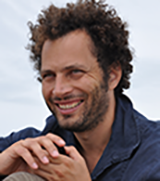
Julius is a molecular biologist and geneticist. He is currently a Senior Group Leader at the Institute of Molecular Biotechnology (IMBA) of the Austrian Academy of Sciences in Vienna, Austria. At EMBL, he was a predoctoral fellow from 2001–2006 in the field of Developmental Biology.
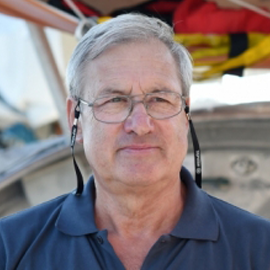
Dr. Gabriel Gorsky
Gabriel was the Operational Oceanography Coordinator of the Tara Expeditions. He obtained his PhD at UPMC, Paris. In 1982 he joined the CNRS and in 2010 he was appointed director of the Oceanological Observatory of Villefranche sur mer. He is active in studies of zooplankton populations, of their interaction with the marine environment and with the biological pump. He took part in numerous oceanographic programs.
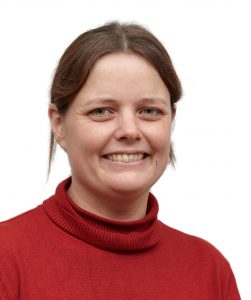
Melissa is a structural biologist working at EMBL Hamburg. Normally, her work with specialised X-ray technology is focused on the characterisation of biological therapeutics such as monoclonal antibodies. However, the SAXS team in Hamburg has recently expanded the use of this technology to the analysis of nanoplastics.
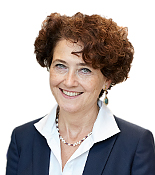
Edith is the Director General of EMBL, and she is responsible for overall leadership, strategic direction, and management of the organisation. She is internationally recognised for her research on epigenetics and her research group focuses on epigenetic mechanisms of mammalian development and disease.
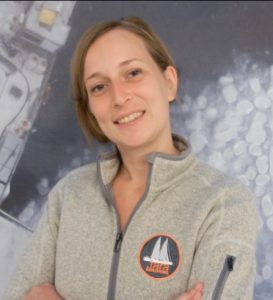
Ms. Romy Hentinger
Romy is the Advocacy and International Cooperation Project Manager at the Tara Ocean Foundation. She focuses on plastic pollution, high seas, climate and biodiversity. She also manages a scientific capacity building and ocean governance project with developing countries in Africa and South America. She has also worked at the French Development Agency (AFD) in French Guiana, Surinam and Brazil on environment and health issues projects with NGOs.
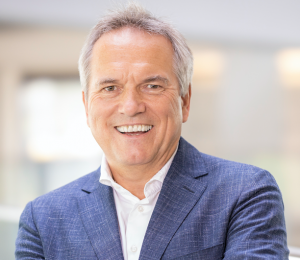
Prof. Matthias Hentze
Matthias is EMBL Director. He is a renowned RNA biologist, and oversees EMBL’s Resource Development and Alumni Relations departments. Matthias initiated the Environmental Research Initiative (ERI) and promotes aspects of EMBL’s public engagement.
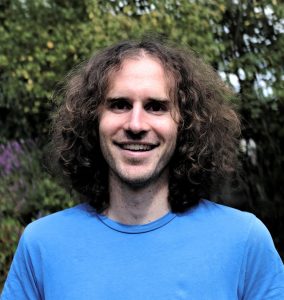
Dr. Richard Jacoby
Richard is a biochemist working at EMBL Heidelberg. He studies how microbes metabolise pesticides. A major goal is to develop new methodological approaches that can monitor the downstream products of pesticide metabolism generated by the microbiome. This will give new insights into pesticide contamination and fate across different ecosystems.
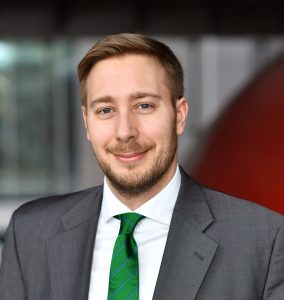
Mr. Christoph Reißfelder
Christoph is a political scientist and head of the HeidelbergCement Liaison Office in Berlin since 2019. He coordinates the governmental relations in Germany with a focus on climate and energy policy issues. Before that, Christoph worked internationally for HeidelbergCement in the areas of energy purchasing, sustainability and investor relations. He was actively involved in the development of the group-wide sustainability strategy and has gained extensive experience in the development and implementation of projects in the fields of renewable energies, CCU/S (carbon capture utilization and storage) and circular economy.

Brendan is EMBL’s first Environmental Officer, leading the initiative to make EMBL a greener and more sustainable organisation. Brendan holds an MSc in Sustainable Resource Management and is a Certified Energy Manager. Brendan’s previous work experience includes management roles in commercial real estate and healthcare. Brendan is also one of the inaugural EU Climate Pact Ambassadors.
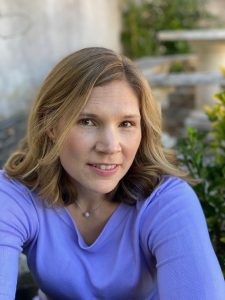
Erin is Head of the Electron Microscopy Facility and a leader in the “Green Team” at the Instituto Gulbenkian de Ciência in Oeiras, Portugal. She is also the President of the Portuguese Microscopy Society. At EMBL, Erin was a postdoctoral fellow from 2009–2013 in the field of Cell Biology and Biophysics.
Information for participants
Learn more about EU Green Week 2021.
Learn more about EMBL’s newest environmental research projects tackling pollution launched by the Environmental Research Initiative.
Support environmental research through the Environmental Research Initiative at EMBL.
Click here for more EMBL events and online seminars.
Learn more about how EMBL explores the secrets of life. The European Molecular Biology Laboratory is a powerhouse of biological expertise.
With 27 member states, EMBL currently employs 1,800 people with more than 80 independent research groups covering the spectrum of molecular biology at six sites in Barcelona, Grenoble, Hamburg, Heidelberg, EMBL-EBI Hinxton and Rome.
Learn more about how Minister Theresia Bauer is enabling the freedom to research, think and be creative through science and cultural policy in the state of Baden-Württemberg, Germany.
Learn more about the Tara Ocean Foundation’s voyages to study and understand the impact of climate change and the ecological crisis facing the world’s oceans.
– Twitter: https://twitter.com/TaraOcean_
– Facebook: https://www.facebook.com/fondationtaraocean/
– Instagram: https://www.instagram.com/fondationtaraocean/
– Youtube video: https://www.youtube.com/watch?v=-JZpxYKzDL0
Learn more about HeidelbergCement’s carbon capture and storage projects, sustainability strategy, and other environmental projects.
Kids’ Corner
„One scoop in a cone, please!“ An interactive science labbook on ocean pollution
Plastic pollution poses a great threat to the environment. Every year, more than 8 million tonnes of plastic end up in the oceans, endangering marine life. “‘One scoop in a cone, please!’ – An interactive science labbook on ocean pollution“ introduces children between 5 and 8 years old to the issue of marine plastic pollution.
In a mix of scientific facts and hands-on experiments, the video resource takes children on a journey following the fate of a piece of plastic in the ocean. Children actively explore the science behind plastic pollution in a series of do-it-yourself experiments, which can be done with simple household materials. They learn how scientists study nanoplastics and get inspired to think about ways to help reduce plastic pollution in their daily lives. The video resource is accompanied by an activity booklet.
Across three chapters, the interactive science labbook addresses the following questions:
1. What is happening to the plastic in the ocean?
2. What are possible threats of very tiny plastic bits?
3. What can all of us do to help keep our oceans clean?
To access the resource, please visit the website of EMBL’s science education unit.











